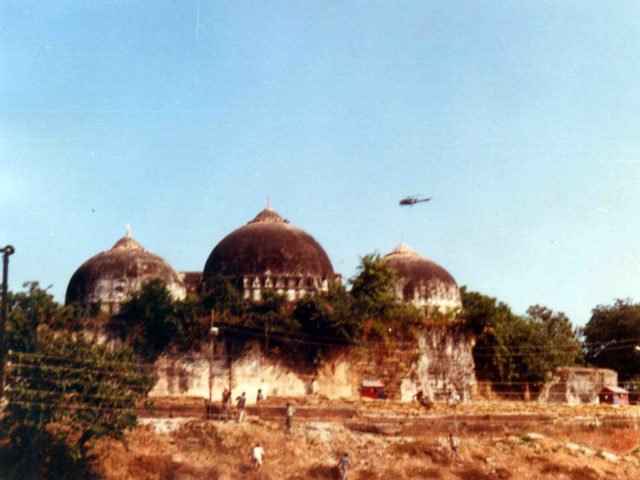If you follow the news regularly, you must be well versed with the Ayodhya Ram Janmabhoomi – Babri Masjid dispute, and even if you aren’t, you must have heard the famous song “Ram Lala Ayenge, Mandir Banayenge”.
As we all know, the matter of Ram Janmabhoomi – Babri Masjid dispute is before the Supreme Court of India and the apex court has hinted that they would wind up the proceedings by 18th of October 2019.
Nonetheless, the judgment in this matter is likely to arrive before the retirement of Chief Justice of India Ranjan Gogoi.
Apart from whatever is already told by media houses, there is another perspective of looking at it. This is the legal perspective which takes us back to the times when jury system was prevalent in India and makes us wonder, what would have happened if the Ram Mandir dispute was tried by a jury and not a bench of judges?
What Is The Ram Mandir – Babri Masjid Dispute?
The Ayodhya dispute is not one which arose a few days back. It is an age-old dispute over the land where the Babri Masjid stood before its demolition. Court has characterized it as a title dispute which makes it fall into the category of a suit of civil nature.

A suit of civil nature is one in which a dominant civil right is involved which is determined with the help of some religious or another ancillary right. Here, the dispute goes beyond the right of ownership or possession and involves the religious beliefs of both Hindus and Muslims.
The Hindus claim that the disputed land is exactly the place where Hindu deity, Lord Ram was born. The Muslim community refutes this fact.
Jury System In India
The jury system is one where a set of sworn individuals sit together to decide a case based on shreds of evidence. The judge in such cases ensures that no legal point is missed and the trial proceeds according to the procedure mentioned in the relevant statute.
The jury system in India was prevalent before the infamous Nanavati case (yes, the one on which the Akshay Kumar movie Rustom is based). In this case, naval commander KM Nanavati was tried by a jury and the jury, to everyone’s surprise, acquitted Nanavati.
After this case, the jury system in India came to an end at large and became restricted only to Parsi matrimonial disputes.
Read Also: ED VoxPop: Do First Time Voters Think That The Ram Mandir Issue Will Affect 2019 Elections?
Jury Trial In Ayodhya Matter
Being a law student, I wonder what would have happened if the Ram Mandir dispute was tried by a jury rather than a bench of a couple of judges who are well-versed with the technicalities and loopholes of the legal system.
The reason behind the end of the jury system in India was that the judgment in the Nanavati case was based more on public opinion and less on legal and evidentiary aspects of the case.
The fact that a bunch of people who may not be necessarily thorough with the legal provisions decide the dispute in a jury trial makes ample space for public opinion to pitch in.

With respect to the Ayodhya case, BJP acquires a chunk of its vote bank by prominently raising that Ayodhya issue in political discourse and to some extent, the same is responsible for the thumping majority achieved by NDA in 2014 and 2019 general elections.
Public sentiment in favour of Ram Mandir construction in Ayodhya is evident and the same cannot be refuted, that too after witnessing the overwhelming support towards BJP.
Had a jury heard the Ayodhya issue, public opinion would have affected the minds of the jury members while taking a decision.
No doubt that there would have been equal representation of both Hindus and Muslims apart from the presence of neutral parties who would have been there to ensure justice, however, the jury’s decision would have been inclined towards the opinion of the public at large and somewhere, legal provisions would have been sacrificed.
However, since the jury system isn’t in India anymore, we will have to wait for the decision of the Hon’ble bench of the apex court.
Image Source: Google Images
Source: The Financial Express, The Guardian, Wired
Find The Blogger At: @innocentlysane






























